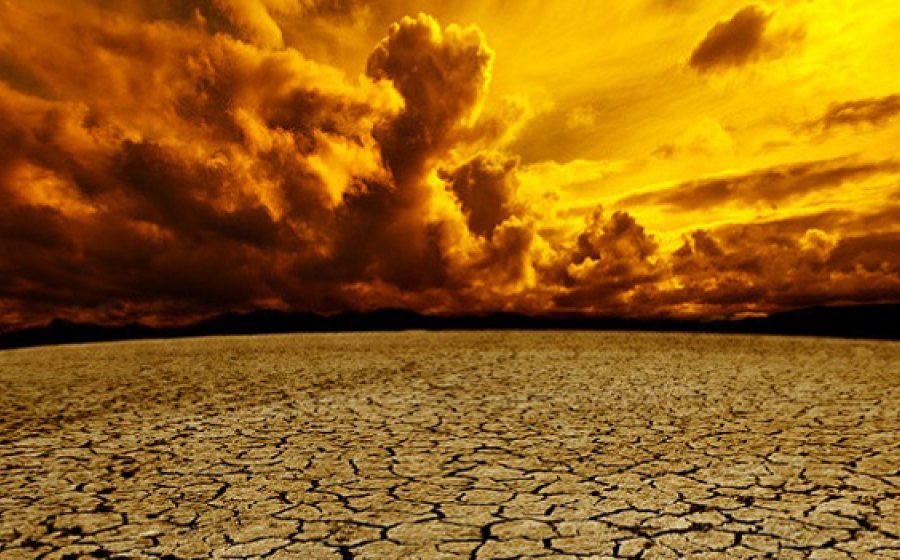Global Environmental Change

Humans are exceeding the carrying capacity of the earth at current levels of consumption and standards of living. The ways we produce food and use land, travel, and use water and energy resources, combined with a growing world population, have severely compromised the environmental resources upon which we depend. Global environmental change, including climate change, ecosystems degradation, and species and biodiversity losses, has been so extensive that we now risk major impacts on human health and well-being. In fact, evidence indicates that these health impacts are already occurring. The loss of ecosystems and their services globally is one of the most pressing and challenging problems facing society in the 21st century, with widespread connections to poverty, risks from natural disasters, and disease
Combining the approaches of epidemiologists, with their naturally occurring data, and clinical trial health scientists, with their randomized controlled trials, we seek to identify the causal links between human activities and global environmental change, and the subsequent effects of that change on human welfare. We also seek to design and evaluate solutions to slow or reverse global environmental change.
Research Highlight
Study Links Fracking Industry Wells to Increased Risk of Asthma Attacks
People with asthma who live near bigger or larger numbers of active unconventional natural gas wells operated by the fracking industry in Pennsylvania are 1.5 to four times likelier to have asthma attacks than those who live farther away, new research suggests. And while these asthma attacks were likely to occur more frequently around wells throughout the four phases of the development process, the researchers found that the increased risk was greater during the production phase, which can last many years. The findings, published in JAMA Internal Medicine, add to a growing body of evidence tying the fracking industry to health concerns. Health officials have been concerned about the effect of this type of drilling on air and water quality, as well as the stress of living near a well. Simply developing a well site can require more than 1,000 truck trips on once-quiet roads. The fracking industry has developed more than 9,000 wells in Pennsylvania in the past decade.
"Ours is the first to look at asthma, but we now have several studies suggesting adverse health outcomes related to the drilling of unconventional natural gas wells," says study leader Sara G. Rasmussen, PhD. "Going forward, we need to focus on the exact reasons why these things are happening, because if we know why, we can help make the industry safer."
Associated Faculty
Paul Ferraro, PhD
Ferraro's research focuses on behavioral economics and the design and evaluation of environmental programs in the private and public sector. Because these research areas are multi-disciplinary and applied, he collaborates with scientists and engineers from a variety of social, natural and physical science disciplines, as well as practitioners in the field.
Shima Hamidi, PhD*
Dr. Hamidi has expertise in geospatial data, built environment, housing and transportation and their connections to public health.
Scot Miller, PhD
Scot studies greenhouse gases and air pollution. Effective climate and air quality regulations depend upon reliable emissions estimates. Scot works to improve these estimates from local to global scales. His existing projects focus on global change in the Arctic, greenhouse gas emissions from agriculture, and emissions from energy industries (e.g., coal, oil, and natural gas). Scot’s research also utilizes statistics, high performance computing, and tools for big data.
Roni Neff, PhD*
Neff's research focuses on food system environmental sustainability and resilience, including equity issues. Her current COVID-19 projects include a U.S. national and Maryland survey related to food security and access, serving on the executive team for the National Food Access and COVID Research Team (NFACT); performing a survey of U.S. food system workers, and supporting a food system indicator project.
Brian Schwartz, MD*
Schwartz has become increasingly interested in the issue of global environmental sustainability, and how land use and energy use are contributing to global climate change, ecosystem degradation, and biodiversity and species losses, and ultimately, posing important risks to individual and population health.
Fenna Sillé, PhD*
The focus of Dr. Sillé's research is understanding the effects of environmental exposures on the development and function of our immune system. Her major research directions are:
1. Understanding the long-term effects of early-life arsenic exposures on immunity and (infectious) disease risk. - Currently studying the interaction between arsenic and tuberculosis,
2. Establishing an integrated platform for immunotoxicity testing of early-life chemical exposures,
3. Investigating the effects early-life exposures on immunological memory and vaccine efficacy.
Genee Smith, PhD*
Dr. Smith explores disease patterns with the aim to expand upon the knowledge of understudied relationships between climate change and infectious respiratory diseases, including conditions such as Tuberculosis and Influenza. Her research examines how climate change has the ability to modify exposure to disease, alter host susceptibility to disease, and impact disease morbidity.
Peter DeCarlo, PhD*
Peter DeCarlo, PhD, studies the chemical composition of gas particles in the air to improve our understanding of climate, air quality, and health impacts of pollutants.
*Denotes faculty who are accepting PhD students.
MPH Concentration in Program on Global Environmental Sustainability & Health
The Johns Hopkins Program on Global Sustainability and Health is engaged in examination of the drivers, consequences and implications of global environmental change in light of the three main complicating challenges of shrinking supplies of inexpensive conventionally extracted petroleum, and financial and political obstacles to achieving a more sustainable future. Learn more.
